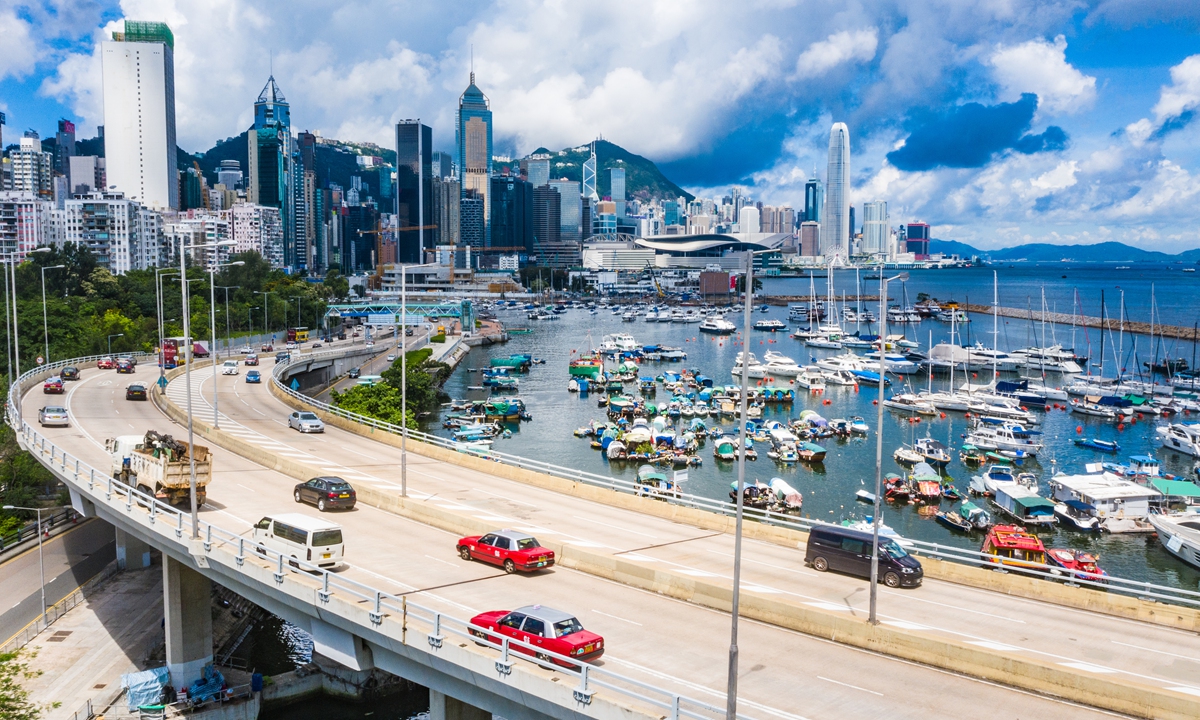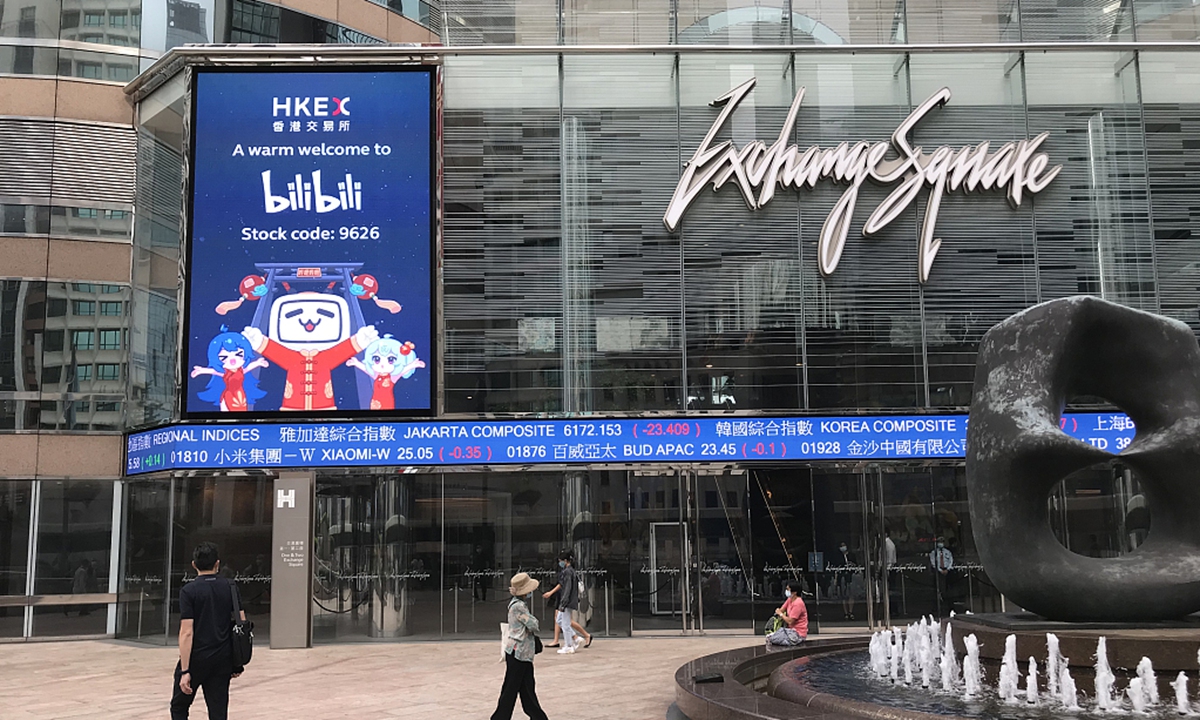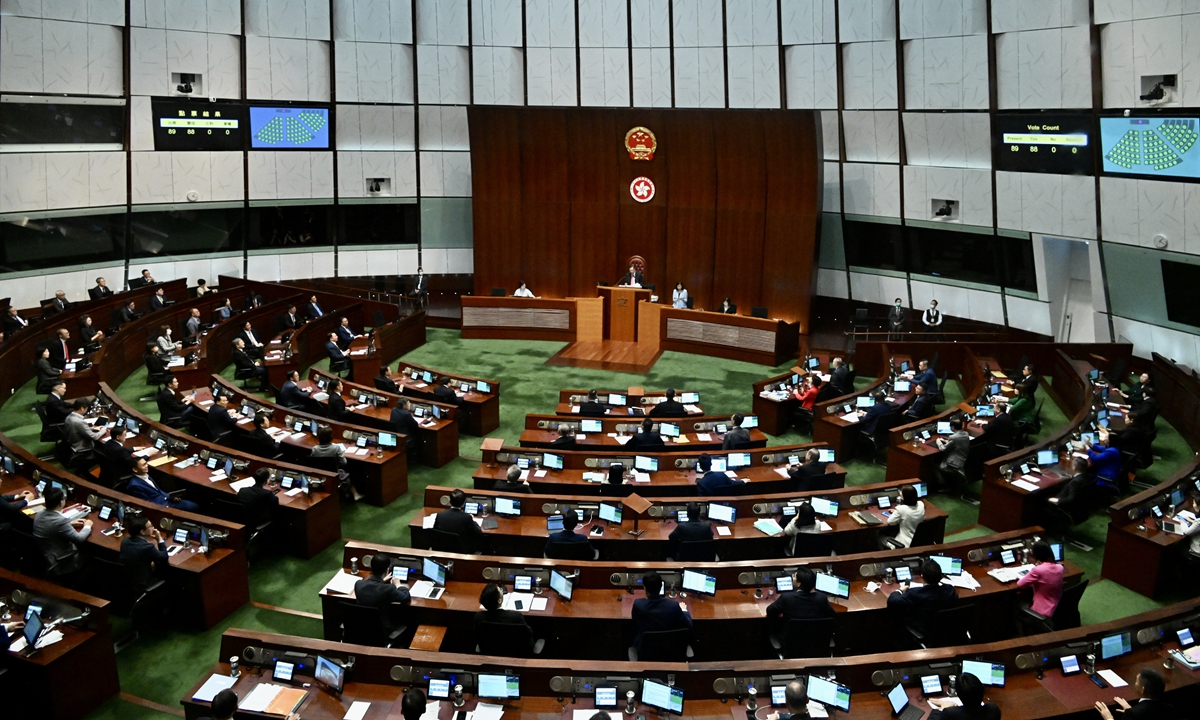Hong Kong to try out more reform measures to bolster growth as local GDP accelerates by 4.1% in Q3

An aerial view of the urban scenery of Hong Kong Special Administrative Region, China Photo: VC
Hong Kong Special Administrative Region (HKSAR) emerged from the pandemic with the society fully returning to normalcy in the past year thanks to the leadership of the HKSAR government and the central government's strong support. Standing at a new start point, development has become an important theme for Hong Kong.
The city's economic growth rate accelerated in the third quarter to 4.1 percent from a year earlier, official data showed on Tuesday, supported by inbound tourism and private sector consumption. Businesses in Hong Kong expressed full confidence in the city's future.
"Hong Kong's tourism industry posted stable recovery so far this year, with visitors crowding popular scenic spots including Victoria Harbor and Times Square during the National Day holidays. The total number of inbound visitors is expected to surpass 30 million for the whole year," Timothy Chui Ting-pong, director of the Travel Industry Council of Hong Kong, told the Global Times on Tuesday.
The global tourism ecosystem experienced a huge change in the wake of the COVID-19 outbreak, with inbound visitors having strong demand for cultural and in-depth tourism instead of shopping and tasting local foods. The government's new policy sets direction for the long-term development of Hong Kong's tourism sector, Chui said.
The HKSAR government Chief Executive John Lee delivered the 2023 policy address on Wednesday at the Legislative Council with the core idea of implementing the One Country, Two Systems, developing local economy and improving people's livelihood.
The Policy Address outlined a series of initiatives to revitalize the economy and create opportunities for the development of priority sectors. Among a raft of measures to attract enterprises, the HKSAR government will also introduce a mechanism to facilitate the re-domiciliation of companies to Hong Kong, in particular those with a business focus in the Asia-Pacific region, according to the document.
In addition, the government is pushing forward a number of major development projects, in addition to formulating the Development Blueprint for Hong Kong's Tourism Industry 2.0, to be published next year.
"Flexible loan repayment measure listed in the government's policy address offers meaningful relief to medium and small-sized enterprises (SMEs) that face rising costs while businesses are still in the recovery stage," Ken Wong, director of Hong Kong-based All Times Healthy Co who attended the summit, told the Global Times on Tuesday.
In addition, the HKSAR government's new policies to assist SMEs explore e-commerce business in the Chinese mainland will help us explore the vast mainland market, Wong said, noting that he will attend the China International Import Expo for the sixth time in Shanghai in November 5 to promote the company's products to mainland consumers.
"Looking ahead, we believe the country's strategy of building a modern socialist country in all respects and advancing the great rejuvenation of the Chinese nation on all fronts will bring new opportunities for Hong Kong as a bridgehead for linking the mainland and the world, Wong said.
Hong Kong, by integrating into the national development blueprint, will embrace immense development space, and its strength as a mature international hub and market economy with rule of law will be better leveraged, observers said.
"Hong Kong has a better foundation in the future," Chui said, noting that it has been proved by facts that One Country, Two Systems and National Security Law for Hong Kong enable the city to recover social stability.
The country's 14th Five-Year Plan (2021-2025) also supports Hong Kong in enhancing its status as an international financial, transportation, trade center and an international aviation hub, as well as strengthening its role as a global offshore yuan business hub, he said.
"Hong Kong's status as an international financial hub is irreplaceable thanks to its advantages including a simple and competitive tax system, common law system and convenient capital flows," Yu Lingqu, director of Financial Development and SOE Research Department at the China Development Institute in Shenzhen, Guangdong Province, told the Global Times.
In Asia, there are no financial centers whose economic capacity could compete with New York or London, and Hong Kong should strive to become the third-largest international financial hub with support from the mainland and the advantage of the One Country, Two Systems, Yu said.
He said that efforts could be made to boost the in-depth integrated financial development within the Guangdong-Hong Kong-Macao Greater Bay Area, while supporting Hong Kong to innovatively develop the offshore yuan market and bulk commodity trading market.



